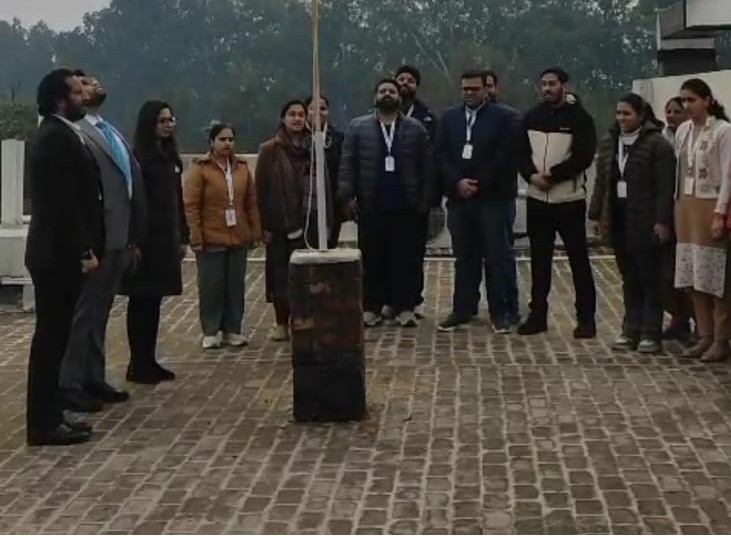The Hidden Dangers of Tobacco: How It Harms Your Heart, Brain, and Skin By Dr. Ajaypal Singh, Abrol Hospital (A Unit of EMC Hospitals)


Tobacco consumption is not just a social evil—it is a “slow poison” that gradually damages several vital organs of the body. While many believe that tobacco only harms the lungs, the truth is far more alarming. Its ill effects reach deeply into critical organs such as the heart, brain, and skin. Dr. Ajaypal Singh, Senior Cardiologist at Abrol Hospital, a distinguished unit of EMC Hospitals, sheds light on the hidden dangers of tobacco.
Dr. Singh explains that nicotine, carbon monoxide, and other harmful chemicals present in tobacco directly impact the cardiovascular system. These substances constrict the blood vessels, disrupt blood circulation, and destabilize blood pressure. Prolonged tobacco use significantly increases the risk of heart attacks and strokes. Alarmingly, tobacco use also affects the brain, leading to memory loss, poor decision-making, and heightened mental stress.
Health experts have observed that smokers often develop hardened arteries in the brain, making them more susceptible to brain strokes and neurological disorders. “Young people often believe that ‘a little bit of tobacco doesn’t hurt,’ but in reality, every puff, every bidi, and every cigarette introduces poison into the body,” warns Dr. Singh.
The impact of tobacco is not confined to internal organs. It severely affects the skin as well. Tobacco reduces oxygen supply in the body, leading to a loss of natural glow. Premature wrinkles, sagging skin, dull complexion, and early aging are all linked to tobacco use. These effects are particularly visible and damaging among women and youth, whose skin health and appearance are rapidly compromised.
Abrol Hospital, a key unit of EMC Hospitals, expresses deep concern on this issue and urges the public to spread awareness against tobacco use. The hospital offers specialized counseling services for tobacco cessation, where trained doctors and mental health professionals guide patients through the process. A combination of medications, medical treatment, and behavioral therapy ensures holistic support for those looking to quit tobacco.
Dr. Singh adds, “Quitting tobacco is not easy, but it’s not impossible. It’s both a mental and physical battle that requires consistent support and motivation. At Abrol Hospital, our services are designed to be a powerful ally in this journey.”
In a heartfelt message to the youth, Dr. Singh appeals: “Don’t fall into the trap of tobacco addiction under the influence of social media, movies, or peer pressure. What may seem like a sign of ‘coolness’ today can have lifelong consequences. The sooner you avoid this addiction and help others stay informed, the stronger and healthier our society will become.”




